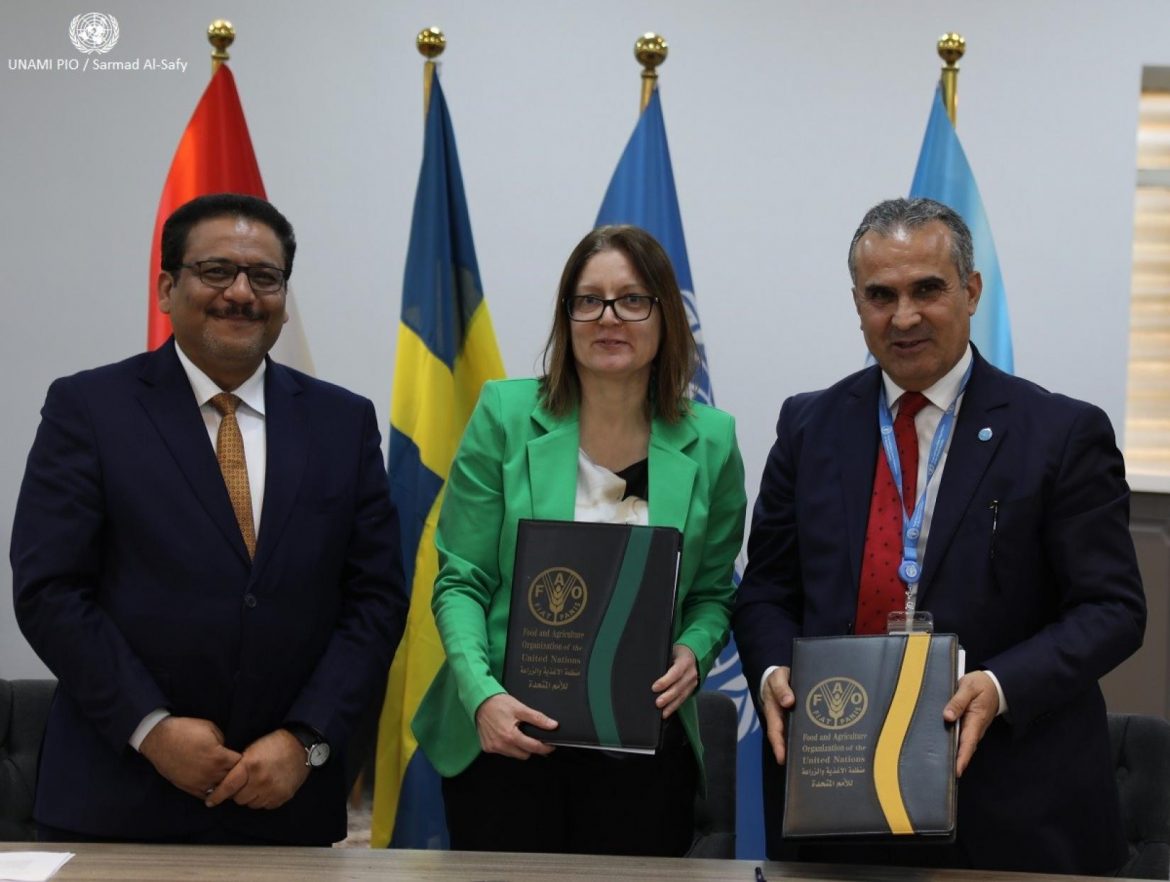The Food and Agriculture Organization of the United Nations (FAO) in Iraq has launched the project “Enhanced Climate Resilience of Vulnerable Agriculture Households in Southern Iraq” in Najaf under the patronage of the Minister of Agriculture, Abbas JabrAl-Aliawi.
The project was funded by the Swedish International Development Cooperation Agency (SIDA).
Najaf Governor, senior officials from Najaf, Missan, Muthanna, and ThiQar, as well as representatives from the farmers union, academia, the commercial sector, and other important stakeholders, attended the launching ceremony, which was presided over by FAO Representative Dr Salah ELHajj Hassan.
The Minister of Agriculture thanked the Government of Sweden and FAO for their assistance in enhancing the welfare and livelihoods of women and men in rural communities in Southern Iraq. He also emphasized the significance of transforming traditional agricultural practices into modern, sustainable ones in accordance with government policy to lessen the effects of climate change and water scarcity on vulnerable families.
Read also: Virgin Atlantic to fly ‘world’s first net zero transatlantic aeroplanes
Governor of Najaf, Dr Majid Al-Waeli said “the project is a great opportunity for Najaf and Southern Iraq, as the country is facing serious environmental challenges including a threat of water shortages. I expect the project to optimize water use in agriculture value chains, as well as strengthen coordination between public and private extension services to increase the adoption of advanced production technologies and practices.”
Dr Salah ELHajj Hassan, the representative for the FAO, congratulated the governments of Sweden and Iraq and emphasized the close collaboration with the line Ministries, local administration, and relevant stakeholders.
The project’s goal is to improve the climate resilience of farming communities by increasing and stabilizing water availability at the farm gate, maximizing agriculture and water productivity, and reducing the adaptation deficit of farming communities through specialized and customized training and capacity development procedures.
The project is intended to address the water availability constraints faced by the agriculture sector as a result of global climate change. In addition to enhancing the strategy framework and stakeholder involvement for climate-resilient agricultural growth, the initiatives seek to further improve the water management institutions and the water distribution regime.
The project, which will be carried out in collaboration with the Ministries of Agriculture, Environment, and Water Resources as well as other national and local stakeholders, will also address current issues with the creation of significant value chains by promoting climate-smart agricultural practices to ensure ecosystem health and biodiversity, gender and social inclusion, and decreased soil, water, and air pollution.
Story was adapted from Reliefweb.
